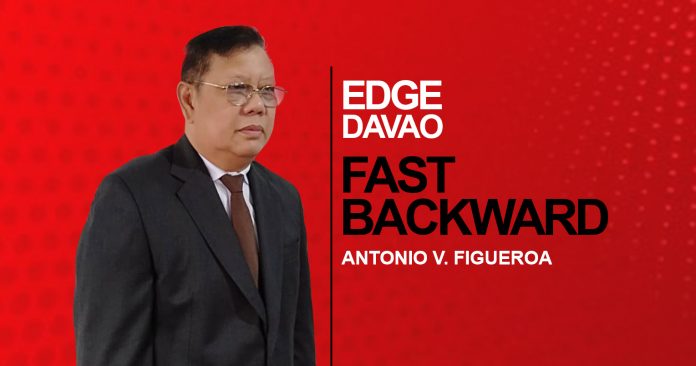To create a semblance of an equitable judicial system, the communist rebels look up to the ‘kangaroo courts’ as the agencies that would define justice in the underground movement. Because of its self-styled role as protector of what is right, the court at times issues indictments.
In June 2000, the National Democratic Front (NDF) and the Communist Party of the Philippines (CPP), through the Southern Mindanao Regional Party Committee (SMRPC), came out with a charge sheet issued by the Merardo Arce Command of the Southern Mindanao Regional Operational Command (SMROC).
Fourteen individuals, ten of them military officers, and their agents were indicted.
The civilian indictees were Joel Brillantes, owner of JB Management Mining Corp,); Rey ‘Chiong Uy’ Uy, co-owner of BLUCOR Mining Corporation and concurrent mayor of Tagum); Rogelio ‘Bebot’ Uy, co-owner of BLUCOR Mining Corp. and chairman of BULLEX Mining Corp.; and Virgie Allones, special assistant to the BLUCOR president.
The charge sheet, following a “revolutionary judicial system and processes,” declared that “a thorough investigation was conducted by a special body” on the accusation and found the military officials and their subalterns to have “committed military acts of aggression and atrocities in the conduct of various counterrevolutionary operations.”
The specific violations of humanitarian law and Human Rights Law are their supposed involvement in the 1999 massacre of Godofredo ‘Ka Paking’ Guimbaolibot, an 18-year veteran of the communist movements; Rolando ‘Ka Jr’ Jubahib, a young NPA medic; and two other individuals identified with the BULLEX Mining Corp. who were with rebels during the ambush.
The incident, dubbed in media as the ‘Mawab 4,” in reference to the town in Davao de Oro where the shooting incident occurred. The charge sheet claims “conspiracy and conjunction of interests among the military, paramilitary and civilian respondents” but it failed to explain why the rebels were riding in a vehicle owned by a mining firm.
To justify the charge, it was claimed that Guimbaolibot was “a combatant in accordance with Article 43, par. 2 (Armed Forces) of the 1977 Protocol,” and because of his supposed abduction, “acquired the status and rights of a prisoners (sic) of war under International humanitarian law, particularly under Article 44, par. 1 (Combatants and Prisoners of War), and Article 45, par. 1 (Protection of Persons Who Have Take Part in Hostilities) of the 1977 Protocol.”
The SMROC, which called the killings “extrajudicial killings,” ruled that the military respondents “be meted out the appropriate penalties for [committing] acts constituting war crimes, crimes against humanity, other serious violations of international humanitarian law and international human rights law” and the civilians “for having connived, conspired and confederated with… the Armed Forces of the Philippines.”
Sounding more like an indictment by a civilian court, the charge sheet detailed that, if captured or arrested, the respondents “shall be guaranteed and accorded human rights treatment should they surrender voluntarily recognize to submit to the jurisdiction of the People’s Court or, in appropriate cases, should the… combatants and spies be arrested or captured in the course of the present people’s war,” adding they “shall be afforded due process and all rights appurtenant to their status and condition under international law, including the right to prepare and present their defense, the right to counsel, and to appeal from any decision.”
Rigoberto F. Sanchez, head of the Merardo Arce Command, signed the indictment. Copies of charge sheets were mailed to President Joseph E. Estrada; AFP Chief of Staff Gen. Angelo Reyes; and the fourteen defendants.




